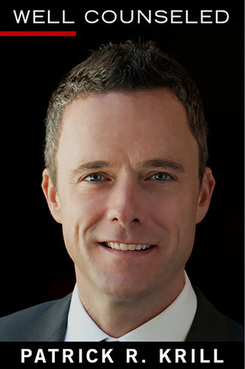ALM Survey on Mental Health and Substance Abuse: Big Law's Pervasive Problem
ALM Intelligence's survey of Am Law 200 firm leaders about their attitudes and actions regarding addiction and mental health challenges reveals much work remains to be done to deal with the problem.
September 14, 2018 at 04:27 PM
9 minute read
If you've ever wondered what leadership in Big Law thinks about the addiction and mental health problems in the legal profession, as well as what those leaders are—or are not—doing about the issues, you are not alone.
Despite the rapidly growing emphasis on lawyer well-being throughout the profession, the attitudes and actions of the largest and most influential law firms have mostly gone unmeasured with regard to this important subject.
Until now, that is.
Seeking to understand what these firms believe about the prevalence of substance abuse and mental health distress, the threats those problems pose to law firms, and the tools and  resources being deployed to combat them, ALM Intelligence and I teamed up to survey Am Law 200 firms earlier this summer.
resources being deployed to combat them, ALM Intelligence and I teamed up to survey Am Law 200 firms earlier this summer.
Confidential, online surveys (as well as several reminders to take the survey) were sent to managing partners, practice group leaders, general counsel, and benefits and HR directors at all 200 firms. The survey contained a series of questions on subjects ranging from stigma, to culture, to policies and education.
Here's a quick summary of what we found: The overwhelming majority of law firms report that alcohol abuse, depression and anxiety are occurring at their firms; half said the same about drug abuse. The stigma surrounding substance abuse, addiction and mental health problems is pervasive in Big Law. Firms are providing at least some training and resources around these issues, but they appear to be insufficient, underutilized, or both. In addition, firms worry most about addiction and mental health problems in the context of potential harm to clients, and see stress and workload as the No. 1 driver of the problems.
By the time the survey closed, we had received responses from 30 firms, representing a 15 percent response rate, with 24 of the 30 responses coming from Am Law 100 firms and the remaining six coming from Am Law 200 firms. In the language that prefaced the survey, we noted that “discussing substance abuse and mental health issues has often been considered taboo in the legal industry,” and our relatively low response rate—a survey finding in and of itself—would seem to suggest that the taboo is alive and well.
Over the course of the next four weeks, I'll discuss some of the survey's most notable findings in a series of weekly columns, and I'll offer insight into what those findings suggest about where Big Law stands on one of the most fundamental issues confronting the legal profession—how to improve and support the health and well being of its members.
Fortunately, the subjects of lawyer substance abuse, mental health and well-being are more widely discussed now than at any other point in the profession's history. This development is both welcome and overdue, a clear sign that we are increasingly willing to engage with difficult and sometimes sensitive topics that have historically failed to rank as true priorities.
But is Big Law on board? Let's discuss some key takeaways.
Who Participated in the Survey
First, even accounting for the general type of survey fatigue and avoidance that may have at least partially depressed the response rate, the number of firms that responded to the survey would seem to suggest that a majority of large firms are either not comfortable discussing these issues generally, they are not comfortable discussing what it is they are doing about them, or they don't view them as important enough to merit survey participation.
Either way, the fact that 85 percent of the Am Law 200 firms declined to share their views on behavioral health issues in the law firm setting indicates that much work remains to be done to normalize and prioritize this issue in Big Law and to facilitate a comfort and willingness to discuss it openly.
Also worth noting, a surprising 100 percent of the firms that responded to the survey stated they have the basic components of a behavioral health infrastructure in place that would theoretically lower the risks associated with substance use and mental health disorders. Those include, but are not limited to, a drug and alcohol policy, an environment that encourages self-referral, employees trained to recognize behavioral health problems, and educational programs about addiction and mental health.
Not only is this response encouraging, but it may also explain a little bit about which firms felt comfortable participating in the survey in the first place, and it suggests some level of confidence and pride in these firms' efforts in this arena.
Problems Reported
I'll more fully explore in an upcoming column what resources, policies and programming the firms report having in place, but for now, I'll just say that despite their efforts, these firms clearly remain exposed to the risks associated with substance abuse and mental health distress, as indicated by their responses about whether the problems presently exist at their firms.
Specifically, 90 percent of respondent firms agree or strongly agree that alcohol abuse occurs in the firm; 48 percent agree or strongly agree that drug abuse occurs in the firm; 86 percent agree or strongly agree that depression occurs in the firm; and 93 percent agree or strongly agree that anxiety occurs in the firm.
Taken one way, these responses reflect a refreshing candor about the nature of behavioral health problems in the legal workplace, since it would be unrealistic to report that these problems did not exist in any large employment setting, let alone a large law firm. This realism, while hardly cause for celebration, suggests a step in the right direction, as the outward posture of many law firms historically has been—at least anecdotally—that those problems may exist in the profession, but they “don't exist here.”
Taken another way, however, these responses suggest that even firms with some of the key ingredients in place have room for improvement in their efforts to address and prevent behavioral health problems, and that more can be done to achieve better results.
Also important to note, the survey did not ask participants whether alcohol and drug addiction occurs in their firms, but rather only alcohol and drug abuse. This, it turns out, is a meaningful distinction because of the stigma that Big Law attaches to one but not the other. My next column will more fully explore the stigma these firms believe exists regarding alcohol and drug abuse, alcohol and drug addiction, depression, anxiety, and receiving treatment for all the above.
Suffice it to say for now, Big Law takes a mostly charitable view toward occasional alcohol abuse, but not so much when that abuse turns to addiction, or when it comes to mental health problems like depression and anxiety. In fact, occasional drug abuse has less stigma attached to it than suffering from depression and anxiety. More on that later.
Perceived Threats of Substance Abuse and Mental Problems to a Law Firm Setting
Aside from cultural norms that have long created tolerance for alcohol abuse in law firms, one reason why firms may take a dimmer view of addiction and mental health problems than occasional alcohol or drug abuse is that they don't perceive occasional alcohol or drug abuse as posing threats to clients or to their firms' reputation as significant—the two areas that our survey reveals worry firms most.
When asked to rank concerns related to substance abuse and mental health problems according to negative impact on the firm, Big Law views “threat or damage to clients” as having the most negative impact, followed by threat or damage to reputation, productivity and damage to work environment. It would follow then, that if occasional alcohol abuse is less stigmatized than addiction, depression or anxiety in a law firm setting, it is because it is seen as less likely to damage clients or the firm's reputation.
Another notable finding related to the risks that law firms see with substance abuse and mental health problems is the comparatively low level of concern about the threat to firm productivity. Excessive alcohol use costs the U.S. roughly a quarter-trillion dollars each year, with more than 70 percent of those costs attributed to lost productivity, while mental disorders top the list of the most burdensome and costly illnesses in the U.S. at more than $200 billion a year, well exceeding the cost burden of heart disease, stroke, cancer and obesity. More than one-third of the costs associated with mental disorders are directly related to lost productivity.
It is completely unreasonable to believe that law firms are somehow exempt from those national trends, despite the historic lack of emphasis they have placed on behavioral health as a key factor in profitability. While I can certainly understand—and agree with—firms perceiving the most negative impact of substance abuse and mental health problems as being a threat or damage to clients, I remain more convinced than ever that large law firms under-appreciate the profound economic inefficiencies that substance abuse and mental health problems introduce into their operations.
Given the continued predominance of the billable-hour structure in law firms, it is worth noting that the economic costs associated with struggling or impaired lawyers are more likely to manifest in quality of work rather than quantity, or in other ways less visible than simply missing a billable-hour target.
Next week's column will take a closer look at the issue of stigma, the following week will examine the causes of substance abuse and mental health problems in Big Law, and the fourth column will discuss the policies, resources and education that firms are making available to address those issues. I hope to see you back here then!
The ALM Intelligence Compass full survey on the mental health and substance abuse is available here for Compass subscribers. Not a subscriber? Click here.
Patrick Krill is the founder of Krill Strategies, a behavioral health consulting firm focused exclusively on the legal industry. Go to www.prkrill.com for more information.
NOT FOR REPRINT
© 2025 ALM Global, LLC, All Rights Reserved. Request academic re-use from www.copyright.com. All other uses, submit a request to [email protected]. For more information visit Asset & Logo Licensing.
You Might Like
View All

'That's Disappointing': Only 11% of MDL Appointments Went to Attorneys of Color in 2023
7 minute read

Confusion Over New SEC Cyber Rules Leading Firms to Overstate Attack Readiness
Trending Stories
- 1Uber Files RICO Suit Against Plaintiff-Side Firms Alleging Fraudulent Injury Claims
- 2The Law Firm Disrupted: Scrutinizing the Elephant More Than the Mouse
- 3Inherent Diminished Value Damages Unavailable to 3rd-Party Claimants, Court Says
- 4Pa. Defense Firm Sued by Client Over Ex-Eagles Player's $43.5M Med Mal Win
- 5Losses Mount at Morris Manning, but Departing Ex-Chair Stays Bullish About His Old Firm's Future
Who Got The Work
J. Brugh Lower of Gibbons has entered an appearance for industrial equipment supplier Devco Corporation in a pending trademark infringement lawsuit. The suit, accusing the defendant of selling knock-off Graco products, was filed Dec. 18 in New Jersey District Court by Rivkin Radler on behalf of Graco Inc. and Graco Minnesota. The case, assigned to U.S. District Judge Zahid N. Quraishi, is 3:24-cv-11294, Graco Inc. et al v. Devco Corporation.
Who Got The Work
Rebecca Maller-Stein and Kent A. Yalowitz of Arnold & Porter Kaye Scholer have entered their appearances for Hanaco Venture Capital and its executives, Lior Prosor and David Frankel, in a pending securities lawsuit. The action, filed on Dec. 24 in New York Southern District Court by Zell, Aron & Co. on behalf of Goldeneye Advisors, accuses the defendants of negligently and fraudulently managing the plaintiff's $1 million investment. The case, assigned to U.S. District Judge Vernon S. Broderick, is 1:24-cv-09918, Goldeneye Advisors, LLC v. Hanaco Venture Capital, Ltd. et al.
Who Got The Work
Attorneys from A&O Shearman has stepped in as defense counsel for Toronto-Dominion Bank and other defendants in a pending securities class action. The suit, filed Dec. 11 in New York Southern District Court by Bleichmar Fonti & Auld, accuses the defendants of concealing the bank's 'pervasive' deficiencies in regards to its compliance with the Bank Secrecy Act and the quality of its anti-money laundering controls. The case, assigned to U.S. District Judge Arun Subramanian, is 1:24-cv-09445, Gonzalez v. The Toronto-Dominion Bank et al.
Who Got The Work
Crown Castle International, a Pennsylvania company providing shared communications infrastructure, has turned to Luke D. Wolf of Gordon Rees Scully Mansukhani to fend off a pending breach-of-contract lawsuit. The court action, filed Nov. 25 in Michigan Eastern District Court by Hooper Hathaway PC on behalf of The Town Residences LLC, accuses Crown Castle of failing to transfer approximately $30,000 in utility payments from T-Mobile in breach of a roof-top lease and assignment agreement. The case, assigned to U.S. District Judge Susan K. Declercq, is 2:24-cv-13131, The Town Residences LLC v. T-Mobile US, Inc. et al.
Who Got The Work
Wilfred P. Coronato and Daniel M. Schwartz of McCarter & English have stepped in as defense counsel to Electrolux Home Products Inc. in a pending product liability lawsuit. The court action, filed Nov. 26 in New York Eastern District Court by Poulos Lopiccolo PC and Nagel Rice LLP on behalf of David Stern, alleges that the defendant's refrigerators’ drawers and shelving repeatedly break and fall apart within months after purchase. The case, assigned to U.S. District Judge Joan M. Azrack, is 2:24-cv-08204, Stern v. Electrolux Home Products, Inc.
Featured Firms
Law Offices of Gary Martin Hays & Associates, P.C.
(470) 294-1674
Law Offices of Mark E. Salomone
(857) 444-6468
Smith & Hassler
(713) 739-1250









